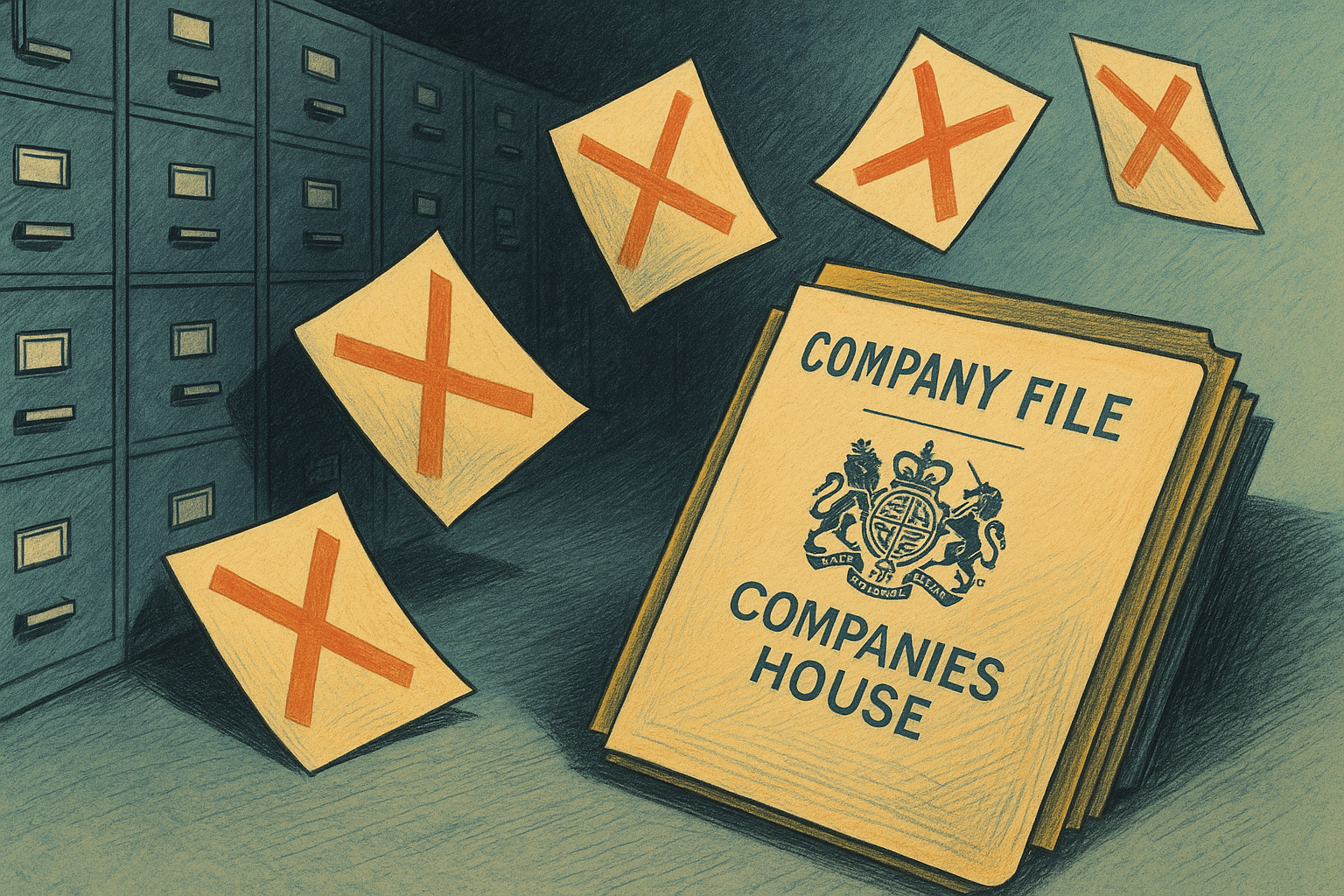Companies House has recently stricken over 10,000 firms off the official register in a comprehensive crackdown on fraud, corporate misuse, and organised crime. This action follows the discovery of a web of merely 30 entities responsible for the incorporation of up to 50,000 businesses suspected of participating in illicit activities.
The initiative, conducted alongside the Insolvency Service, is part of broader efforts to restore the integrity of the UK’s business registry and address long-standing loopholes enabling criminals to exploit shell companies for money laundering, property fraud, and tax evasion. Investigators have already identified approximately £50 million in UK property assets connected to organised crime, which are now the focus of active asset recovery probes.
The agencies are also scrutinising over 100,000 shell companies formed in the last two decades, known to be involved in diverse illegal activities, with many facing dissolution under this unprecedented enforcement push. Meg Ogunsola, Global Director of Entity Management Solutions at Vistra, lauded the new enforcement approach: “Companies House deserves real credit for stepping up its role in tackling fraud and driving greater corporate accountability. The newly empowered registrar is already removing firms from the register for illicit activities, rejecting inaccurate submissions and applying a level of scrutiny we’ve never seen before.”
The removals coincide with an expansion of Companies House’s powers under recent legislative reforms, which grant the registrar greater authority to challenge, reject, and eliminate non-compliant or fraudulent entities from the register. These enhanced powers are beginning to affect the composition of the UK’s company registry significantly.
The crackdown unfolds as major regulatory changes are set to be implemented later this year, including mandatory identity verification for all company directors and persons of significant control. This move is aimed at preventing the establishment of companies using fake or concealed identities. Ogunsola emphasised the urgency for businesses to comply: “Firms must prioritise identity verification for all directors and persons of significant control, ensuring the process is completed well before the autumn deadline. With mandatory ID verification and the ‘failure to prevent fraud’ offence coming into force this September, the message to firms is clear: take notice and take action now.”
The new “failure to prevent fraud” offence, which is part of the Economic Crime and Corporate Transparency Act, holds companies criminally liable if they do not implement reasonable measures to prevent fraud by employees or associates. Given the UK’s ongoing international criticism for its role as a sanctuary for opaque corporate structures, particularly in property ownership, these measures signal a significant shift in enforcement and tone.
The proactive stance from Companies House indicates the era of anonymous, unverified corporate registrations may be drawing to a close.




